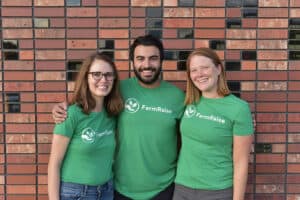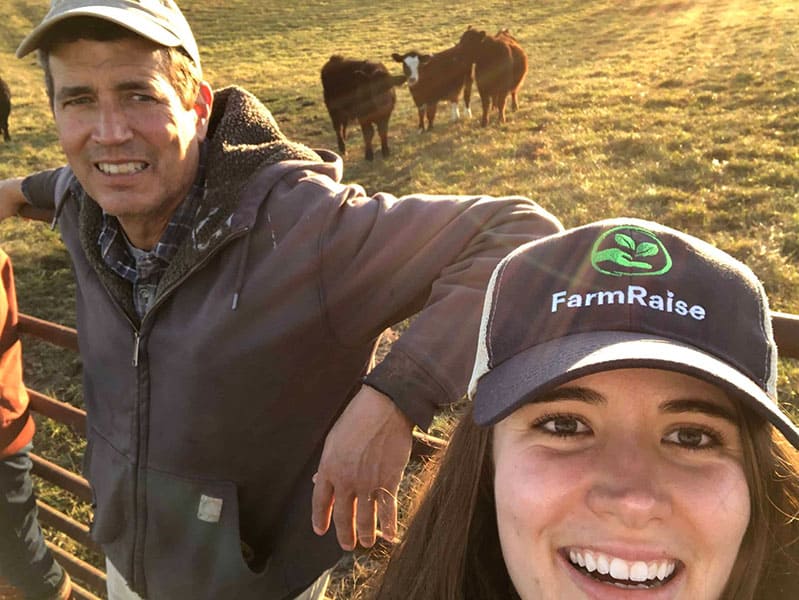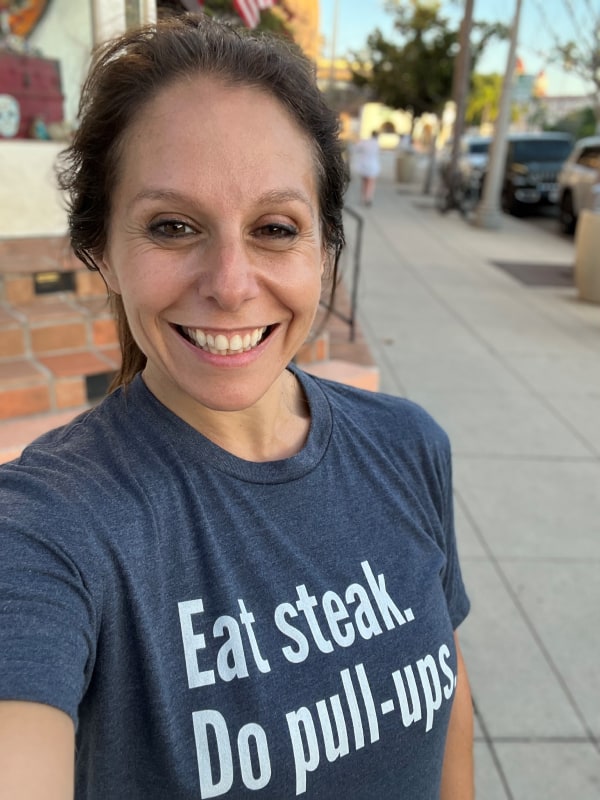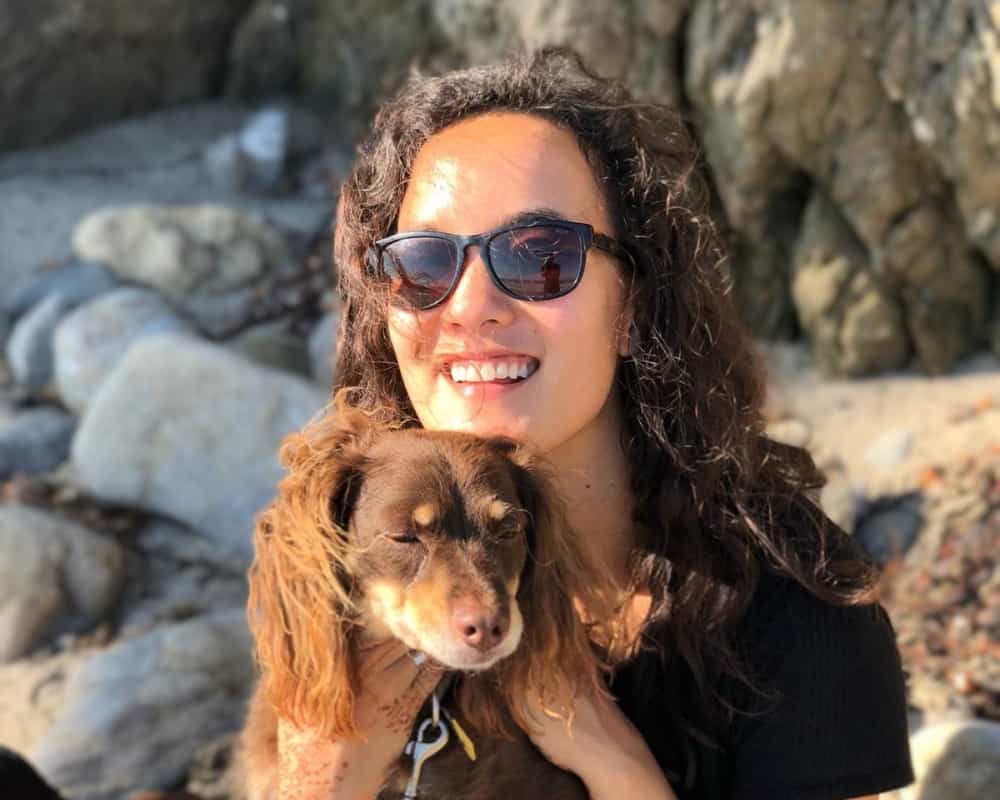Growing up on a cattle ranch in Virginia, Ulupreneur Jayce Hafner watched her family struggle yearly to make ends meet. As hard as they tried, the business wasn’t growing and their operating margins were exceedingly tight. She and her father were always looking for better ways to farm, and investing in soil health was something that intrigued them. They learned from other farmers about the profitability benefits that came along with sustainability and improving soil health.
They applied for a grant to improve their sustainable practices and it completely changed how they farmed; it also helped them move their operations into the black. With the excess profits, they were able to build new fences and water systems that helped them graze their cows in a way that was more holistic and regenerative. All the benefits spurred Jayce to recognize the power of finance in farming.
 By the time she met her soon-to-be co-founders Sami Tellatin and Albert Abedi at Stanford GSB, the trio recognized that farmers could make better financial and sustainability choices if grants could be made more available and accessible.
By the time she met her soon-to-be co-founders Sami Tellatin and Albert Abedi at Stanford GSB, the trio recognized that farmers could make better financial and sustainability choices if grants could be made more available and accessible.
They founded FarmRaise in 2020, an end-to-end farm funding solution that helps farmers apply for regenerative agriculture grants and grow their businesses. There are now 10,000 farms on the platform.
We spoke to Jayce about building and fundraising for a business that most folks in Silicon Valley don’t really understand.
What’s your passion around FarmRaise?
One of the things that’s very rewarding about farming is how you see the impact of everything you’re doing in the field, day after day. It’s physically exhausting because of the labor involved, and it’s also mentally exhausting because as a farmer—like many small business owners—you have to deal with lots of last-minute things that come up during the day, like a sick animal or a broken fence, or the weather changes or market prices fluctuate: things never go as you think. At the end of the day, you’re often mentally and physically completely exhausted, and you have very little bandwidth and energy, let alone the tools to work on the business side of your farm to optimize your finances. It motivated me to seek a solution that helps farmers more efficiently access and manage their capital.
Why FarmRaise, why now?
We see these amazing tailwinds with emphasis and money and energy around investing in regenerative agriculture right now. You see it among institutional investors who are allocating tens of billions of dollars of capital to deploy onto projects that will enable regenerative agriculture, and then you’re seeing it from the grassroots with farmers like my dad, and so many of the farmers we’re talking with who want to implement these sustainability practices. We realized we could provide the tools and services that could help them improve their profitability and sustainability in ways that have compounding benefits for the farm.
What were your strategies in getting your first customers?
We assumed we’d have to go to conferences and talk farmers into joining our platform, which is incredibly time- and money-intensive. But then we found that a much faster way to acquire early users and get quick feedback loops was by joining existing Facebook groups. We would write and post an article about what we were doing or even just post our landing page and then say, “Look, here’s what we’re building. Can you join up, give us feedback?” And we were seeing hundreds of farmers sign up for like a landing page—which is really cool—in just a few days. And that engagement helped us understand the appetite for our product, and it also gave us really quick, real-time feedback on what we were building, as well as the pain points we were exploring, because it was a great forum to provoke discussions around how hard it is for a farmer when they want to explore rates and terms across different loans.
What advice would you give to other founders about fundraising?
Fundraising is very much a sales mindset. As a founder, you are selling yourself and you’ll be rejected a lot. I encourage founders to think ahead of time about what this period of life is going to be like. Try to set up mechanisms of support to assist you throughout the process, whether it’s your interpersonal relationships or creating a cadence in your week, so that you have time to refresh and renew yourself, because the harsh reality is you’re about to embark on a journey where you are going to be dissected and often cross-examined right on the spot. So be prepared for rejection and create ways to rejuvenate yourself in the midst of that. As you persevere, talking to enough funders, you will find someone who will take your idea and run with it. You’ll find a way, but it’s a volume game and trying to remember that it is a game—rather than an examination of your soul —I think is really important.
What’s been the most difficult part about building FarmRaise?
One of the biggest challenges I’ve run into while finding and allocating resources for farmers through fundraising is doing some education work in Silicon Valley around what it means to be a farmer today. There are a lot of preconceived notions that farmers are impossible to reach or farmers don’t use technology or like technology. But investors are also really curious about farmers. And they want to learn about them and it’s really cool that it goes both ways. Our farmers want to know about our investors; they want to know who’s backing them and why. There are so many people now who are springing up and working to bridge those worlds of America’s agricultural landscape and Silicon Valley. It’s an exciting time to be there because there’s still such a gap and we have a lot of work to do.
What are your dreams for the future?
Our goal is to grow profitability, ecological resilience, and equitable access across farming communities and we aim to do it by being the farmer’s trusted partner in every major business decision that they make. We’re starting with farm grants, one of their most visceral pain points, and helping them apply for funding. From there we’re going to work with them to enable even more outcomes: we envision helping farmers select or inherit their farm, invest in that farm through funding programs like the ones we’re currently helping them access, banking that farm and sharing that farm, allocating resources through having great visibility into their cash flow day after day to run that farm, and then eventually helping the farm sustainably pass to the next generation through succession planning and retirement planning. We want to be that full-stack, trusted financial services partner for the farm.




